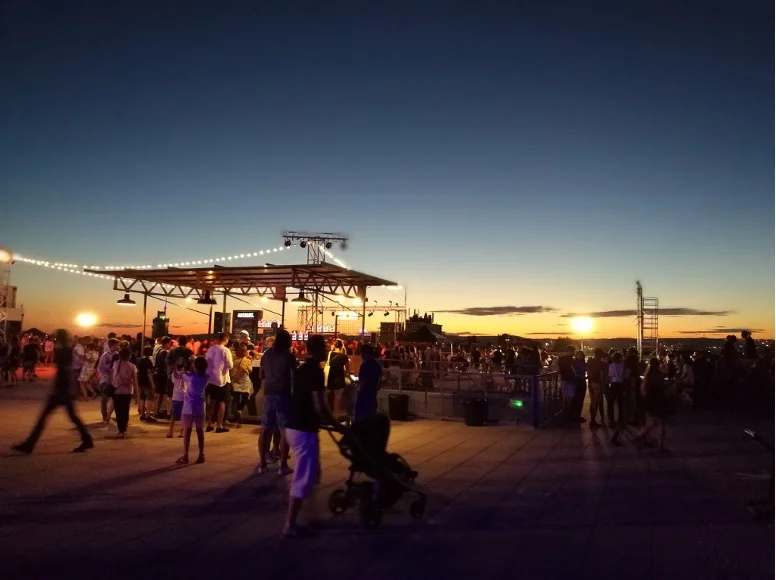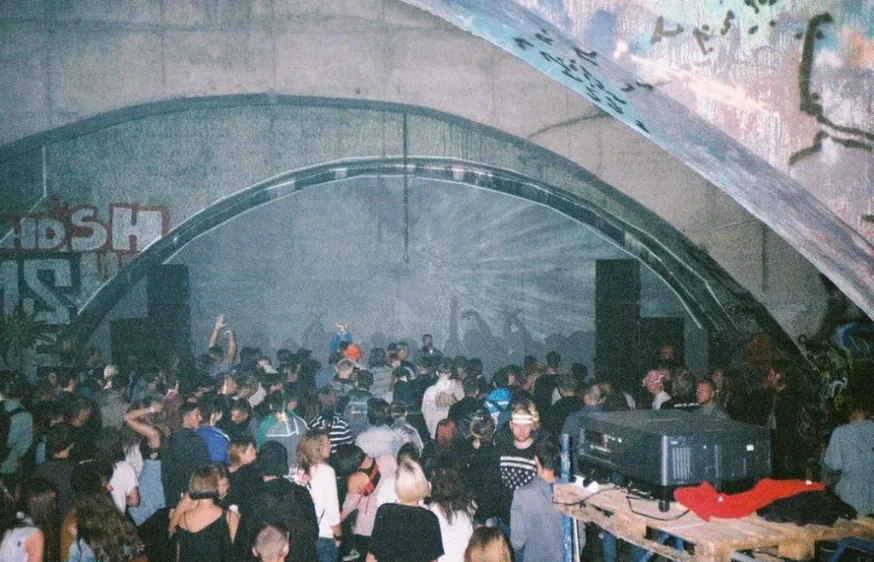At first glance, the recent acquisition of Superstruct Entertainment by KKR and CVC might look like good news: a global festival group receives growth capital, an experienced management team, and new scale. But look closer, and a different story emerges — a textbook private equity move, with subtle yet profound consequences for what we have come to regard not only as entertainment, but as identity, ritual, and lifestyle.
The Scale Illusion
As of June 2024, private equity giants KKR and CVC are steering Superstruct Entertainment, a festival group now comprising more than 80 events worldwide. From Sónar to Milkshake, DefQon.1 to Boiler Room — an impressive cultural portfolio under one roof. Total price? €1.3 billion.
Behind the scenes, this is a classic case of private equity strategy: cluster the brands, merge back offices, cut costs, increase margins — and prepare for resale or IPO in a few years.
It makes sense, in a way. Scale is efficient, especially when staffing is tight and production costs are rising. But efficiency raises questions. Where scale enters, nuance often disappears. And where profit becomes the dominant language, experience fades into the background. Slowly, almost imperceptibly, meaning slips away under the weight of spreadsheets.
Value Beyond Profit
Festivals aren’t factories. They’re rituals. Temporary worlds where people get to be themselves — or escape themselves for a while. Where music isn’t an algorithm but a form of breath. Where brands, memories, emotions, and identities converge.
But it’s precisely those intangible values — trust, emotional loyalty, cultural identity — that come under threat the moment private equity takes the wheel. A festival isn’t scalable like a SaaS platform. You can’t “optimize” a community without touching its soul.
What remains of the magic when it’s reduced to KPIs? The question isn’t whether this strategy works — but what it breaks in the process. The cultural sanctuaries once governed by vision are now treated as scalable assets, managed by investment vehicles.
The Cultural Toll
Criticism of the acquisition isn’t just coming from artists stepping back due to KKR’s political affiliations (including defense and pro-Israel infrastructure investments). It’s coming from within: programmers, producers, and creatives questioning how long their autonomy can survive in a centrally governed festival economy.
And rightly so.
When line-ups are eventually curated by AI models and ticketing is managed by a centralized CRM system, the space for artistic deviation shrinks. For that unknown local collective that stuns a crowd. For radical programming that doesn’t sell, but deeply moves.
What remains is a functional festival. Perfectly timed. Streamlined. And soulless.
What used to be an anonymous dance floor has become a measurable behavioral matrix.
What used to be about freedom and expression is now increasingly tied to predictability.
And in that shift, the nature of our collective identity changes.
So what happens when our shared cultural fabric — so vital for meaning and belonging — is financed by structures that, elsewhere, foster conflict, control, and exclusion?
Data as Silent Currency
Rarely discussed is the true yield of consolidation: data.
Under the Superstruct umbrella now falls the behavior, profiles, and location histories of millions of festivalgoers. Who you are. What you drink. When you dance. With whom. Where you pay.
In a world where data is power, this becomes a goldmine — managed by private equity. And that’s not a neutral fact. These new data custodians are financially connected to power structures with political implications.
KKR, which acquired Superstruct in 2024, counts among its top donors major financiers of Republican campaigns, including Trump’s. While there’s no evidence that festival data is shared directly with political actors, it does raise questions about how closely culture and power can become intertwined.
And then the uncomfortable question arises:
What happens when my online identity becomes inseparably linked to my festival presence?
Am I now “profilable” for commercial use I never consented to?
Will I be flagged as high-risk for insurance, a visa, or a mortgage?
Turned into a data-driven archetype — party animal, high spender, urban explorer — without any control?
And if my visit to Boiler Room or DefQon.1 is later cross-referenced with datasets on drug use, health stats, or lifestyle classification — who protects me then?
In the dance of algorithms, it’s no longer clear who leads — or who’s quietly being dragged along.
Against the Rocks of Reality
Meanwhile, the festival industry itself is under pressure. Many events operate on shrinking margins, rising costs, and an audience that’s more selective about how it spends. Sponsorship budgets are tightening. F&B profits are no longer a given. And ticket sales, once a certainty, are now slow to start — or even disappoint.
In that reality, the promise of scale rings hollow. What if the entire data-driven operation runs smoothly — but the room stays half full? What if the algorithms are right — but the soul is missing?
Private equity expects returns, but culture doesn’t obey. Especially not in a time when younger audiences demand more than convenience. They want meaning, transparency, and identity that cannot be bought.
Where Pressure Builds, Resistance Emerges
Against this backdrop of consolidation and data efficiency, something else is rising. In attic studios, squatted schools, and pop-up locations on the edge of cities: young creators and communities refusing to align with dashboards and growth targets.
They build experiences without a business model. Safe spaces without ROI. Because something must remain that isn’t optimized or surveilled.
These raw, often fragile initiatives keep the sector honest. They remind us that culture starts with sharing, not steering. That identity grows from friction, not formatting. And that sometimes, the rhythm of a festival speaks loudest when it’s not completely predictable.
Finally: The Future Is Not for Sale
What’s truly at stake here is more than ownership. It’s cultural trust. And that trust is not an asset — it’s borrowed from the audience. From the people who return year after year, not because the program is flawless, but because they see themselves in what has been built. Through the vision of the makers, supported by the community.
Those at the helm — shareholder, director, manager, fund — bear a responsibility not just to manage, but to understand that short-term gains can never justify long-term erosion of meaning.
The future lies not in consolidation, but in daring to share again. In restoring trust, revaluing autonomy — and preserving the freedom to deviate from scripts and break down silos.
‘The Revolution Will Not Be Datafied!’
Wholeheartedly,
Deniz





